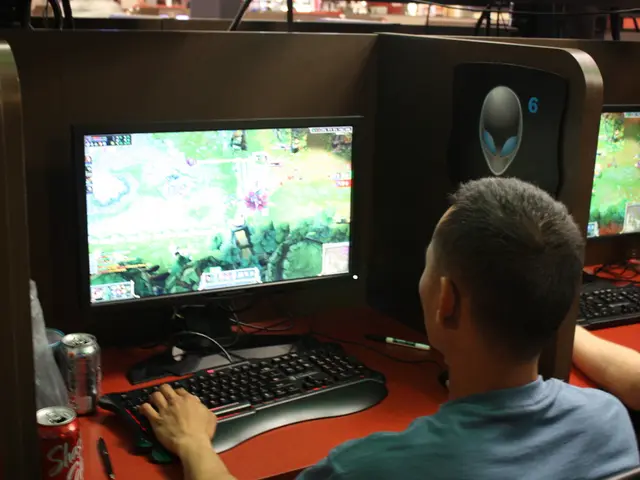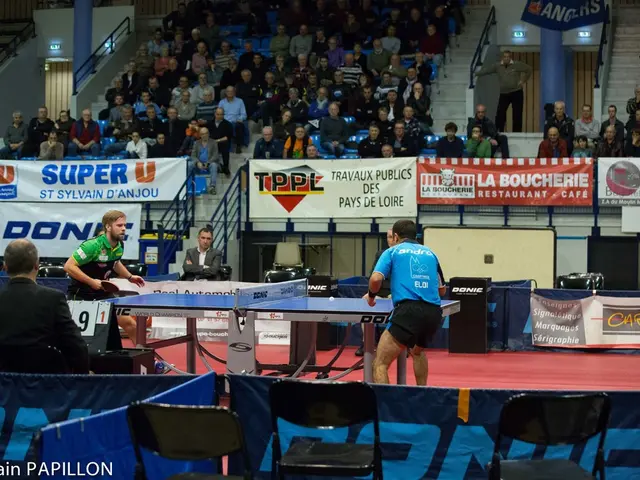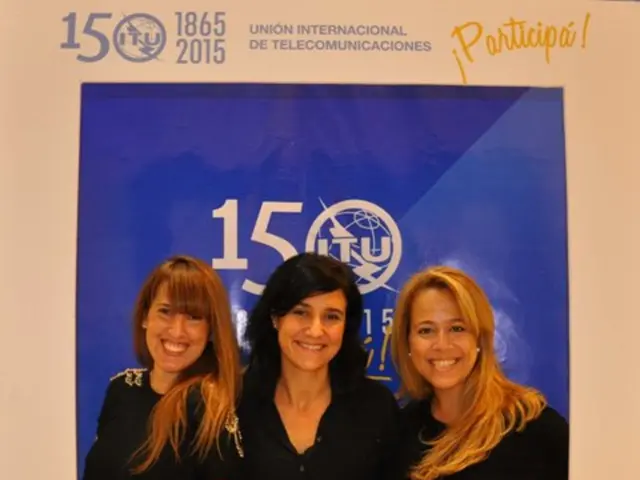Pursuing Continuous Slot Machine Defeats: The Ineffective Approach Explained
In the world of casino gaming, a common misconception known as the "Cold Machine" Fallacy persists. This belief is that a slot machine that hasn't paid out for a while is "due" to pay out soon, making it a prime target for players seeking their luck. However, this fallacy is rooted in the Gambler's Fallacy, a cognitive bias that incorrectly assumes that independent random events influence each other.
Slot machines, contrary to this belief, operate using random number generators (RNG) and have no memory of previous spins. Each spin is an independent event with fixed probabilities, meaning there is no built-in mechanism that makes a machine "hot" or "cold." The assumption that a machine's payout behavior changes based on recent history is therefore false.
Chasing losses in slot machines is a losing strategy, as it combines the gambler's fallacy and the sunk cost fallacy. When players continue betting on a "cold" machine hoping for a turnaround after losing money, they're ignoring that past losses do not increase future winning chances. Additionally, the sunk cost fallacy causes them to throw more money into the machine to recover past losses, even though these prior losses are unrecoverable.
The house edge ensures that over time, the casino always profits. This edge typically ranges from 2% to 15%, depending on the game, the casino, and the machine's payout structure. The belief that a slot machine that hasn't paid out in a while is "due" for a win or "cold" leads players to chase their losses, pouring more money into a machine believing that a big payout is just around the corner. This only serves to exacerbate the problem of the house edge.
It's essential to approach casino gaming responsibly. The true reward is not found in the fleeting thrill of a jackpot, but in enjoying the entertainment responsibly and walking away on one's own terms. Budget management is the most important tool for responsible gambling. Key strategies include setting a loss limit, using cash instead of credit, setting a time limit, taking breaks, and tracking wins and losses.
Modern slot machines are designed to keep players engaged with near-misses, which trigger the same reward centers in the brain as actual wins. However, it's crucial to remember that each spin is independent and unaffected by what came before. The odds of winning on the next spin are exactly the same, regardless of the machine's recent payout history.
Strategies that claim to beat the odds, such as the Martingale system, are flawed and serve as another way to chase losses in disguise. These systems can lead to significant financial losses, especially for those who lack the means to continue increasing their bets.
In conclusion, the "Cold Machine" Fallacy is a psychological trap that makes players believe they can overcome the house edge by sheer persistence. Understanding the fallacy and adhering to prudent budget management techniques, setting clear limits, and never chasing losses are essential for enjoying the experience of casino gaming while maintaining control over finances.
Blog posts entitled "Debunking the 'Cold Machine' Fallacy: Understanding the Psychology Behind Slot Machine Gambling" and "Responsible Casino-Gambling: Strategies to Manage Your Budget and Avoid Common Fallacies". The former discusses the misconception that a machine's payout behavior changes based on recent history, debunking the 'Cold Machine' Fallacy, and draws parallels to other cognitive biases such as the Gambler's and Sunk Cost Fallacies. The latter offers advice on responsible gaming practices, emphasizing the importance of budget management techniques, setting limits, and avoiding strategies like the Martingale system that claim to beat the odds but actually increase the risk of financial loss.







